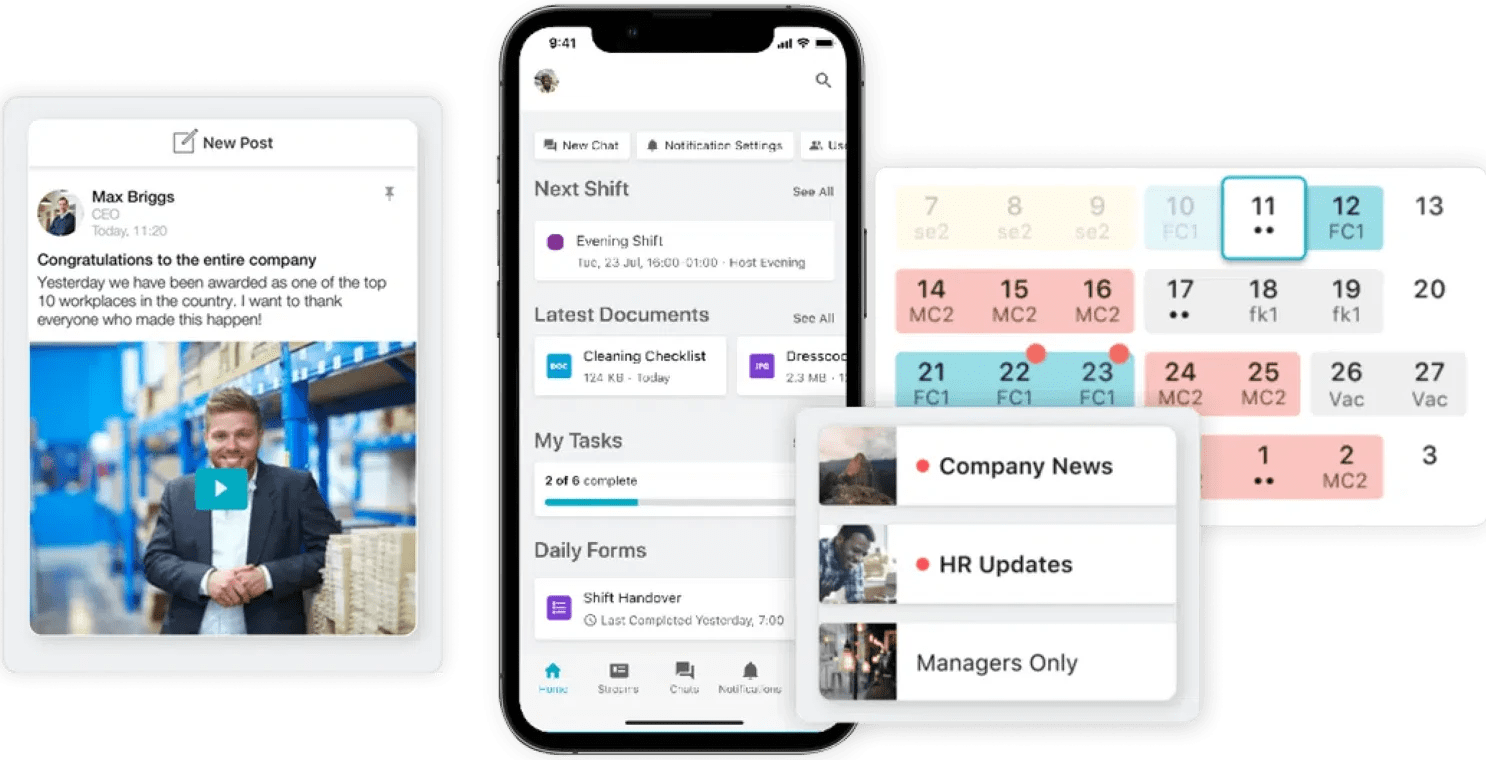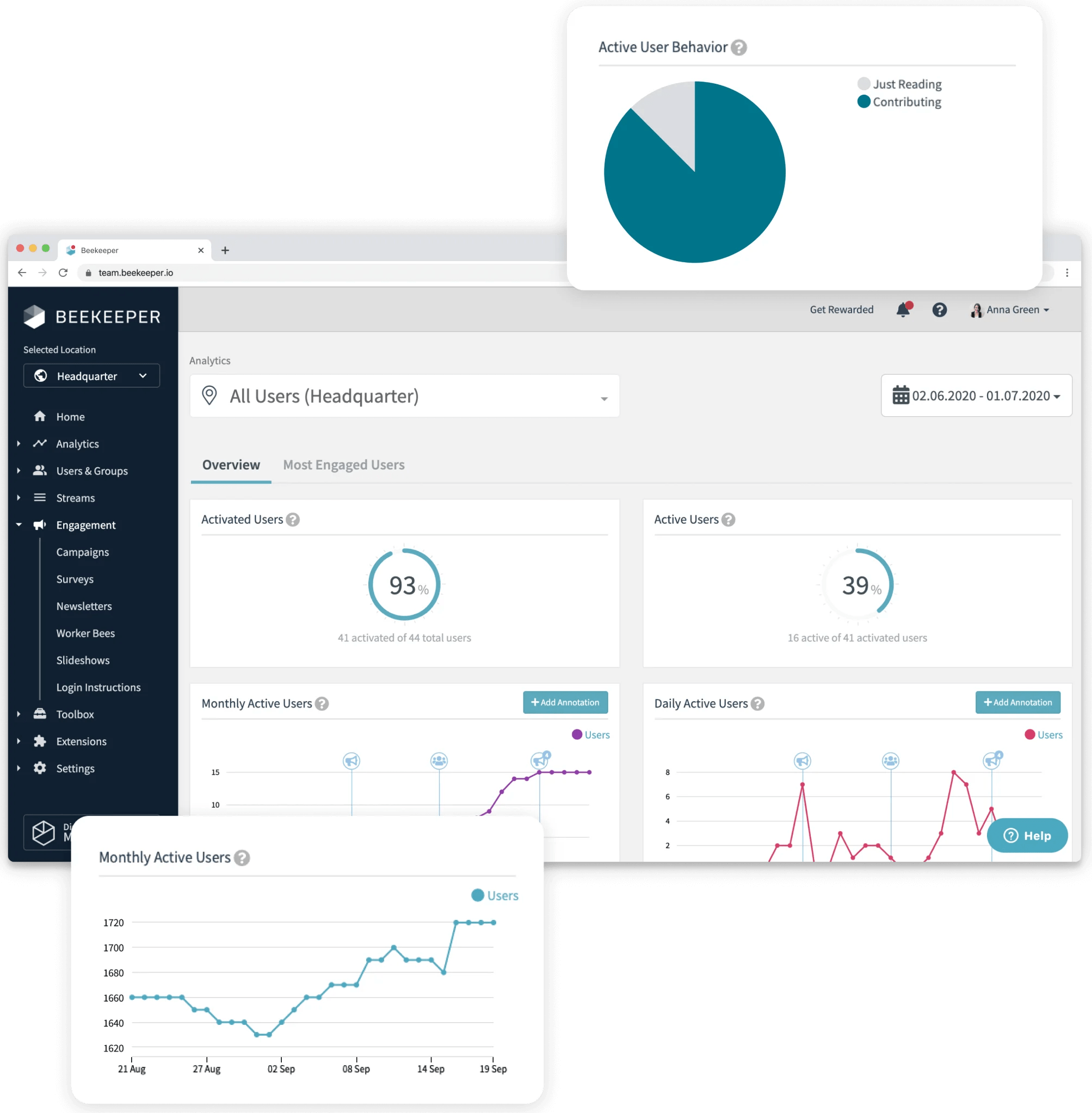Beekeeper, a platform for businesses to engage with frontline workers, has raised $50 million in a Series C round of funding.
Founded out of Switzerland in 2011, Beekeeper targets the estimated 80% of the global “deskless” workforce who don’t work from a fixed office-based location, spanning hospitality, retail, manufacturing, logistics, healthcare, among other industries.
Beekeeper’s platform constitutes tools to support messaging, surveys, video and voice chats, FAQ chatbots, workflow automation (e.g. for onboarding new hires), shift scheduling, documents, forms, and more.

Beekeeper platform Image Credits: Beekeeper
On top of that, Beekeeper also packs analytics to serve managers with metrics around engagement.

Beekeeper analytics Image Credits: Beekeeper
Other notable players in the space include Connecteam, which recently closed a $120 million round of funding, while the likes of WorkStep, WorkJam and Skedulo have also raised sizable sums of VC cash in recent years.
Collectively, they’re all setting out to solve a similar problem, vis-à-vis how best to connect with the millions of workers not tethered to a desk, and who may only sporadically be able to check-in online.
“Beekeeper helps companies reach and connect with frontline employees who do not work at a desk, speak dozens of languages, work with their hands, and usually don’t have company email accounts,” CEO Cris Grossmann told TechCrunch. “Our software allows organizations to streamline virtually every aspect of the frontline employee experience — from automating paper-based processes to distributing shift schedules to digitizing important resources like employee handbooks.”
Beekeeper has amassed some big-name customers over its 10-plus years history, including hotel giant Hilton and food corporation Cargill. And as with just about every other technology that promises to benefit either remote or “essential” frontline workers, Beekeeper has benefited from the pandemic’s impact on the global workforce in terms of spurring companies to modernize how they liaise with their workforce.
“As the public became more aware of the crucial role our frontline workforce plays in every aspect of human life, they began dominating news coverage and national conversations,” Grossmann continued. “Companies quickly discovered that they couldn’t communicate instantly or convey rapid updates to their frontline teams. The standard top-down, word-of-mouth communication channels, classical or social intranets, and bulletin boards they relied on for decades failed. Many had to implement new technologies to connect and empower their frontline workers — and they needed to do it fast.”
Path to retention
At its core, connecting and engaging is really all about retaining — countering the so-called “great resignation” and the vast swathe of existing unfilled jobs. Reducing friction and frustrations, and ensuring that concerns are addressed are pivotal to keeping frontline workers happy.
“Organizations that rely on frontline labor to make, sell, and distribute their products are being forced to address long-standing pain points around pay, working conditions, and the employee experience for their frontline teams,” Grossmann said. “Forward-thinking organizations are taking action to address frontline disconnect and high turnover in a holistic way that solves it once and for all.”
Prior to now, Beekeeper had raised around $81 million in financing, and with another $50 million in the bank, the Zurich-based company said that it plans to double down on product development and build on its recent growth which it said has seen its revenue rise by 100% since the start of the pandemic.
Beekeeper’s Series C round included investments from EGSB, Kreos Capital, Energize, Thayer, SwissCanto, Keen Ventures, Alpana and Verve Capital.
Beekeeper, which helps companies engage with their ‘deskless’ frontline workforce, raises $50M by Paul Sawers originally published on TechCrunch
DUOS





